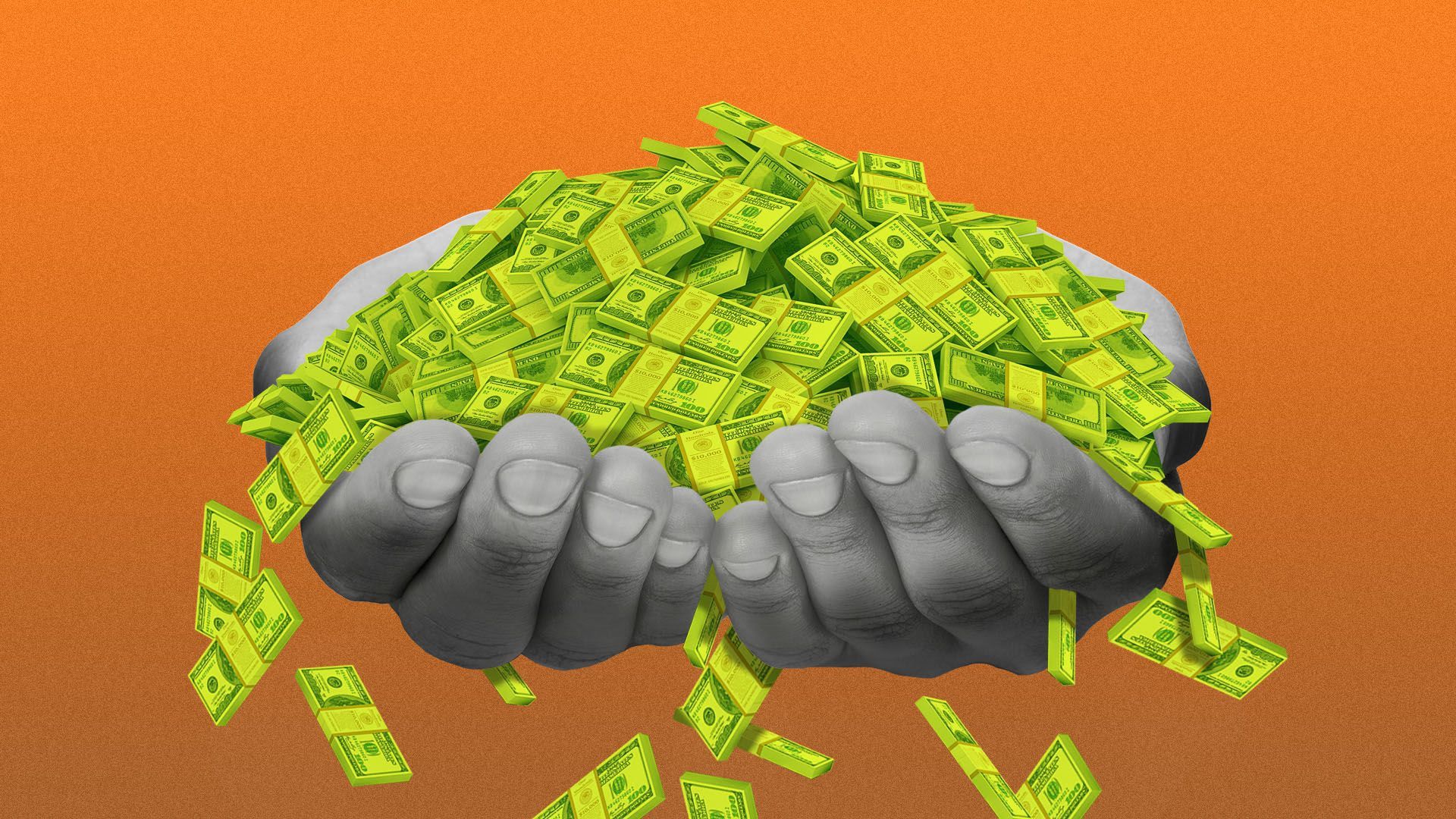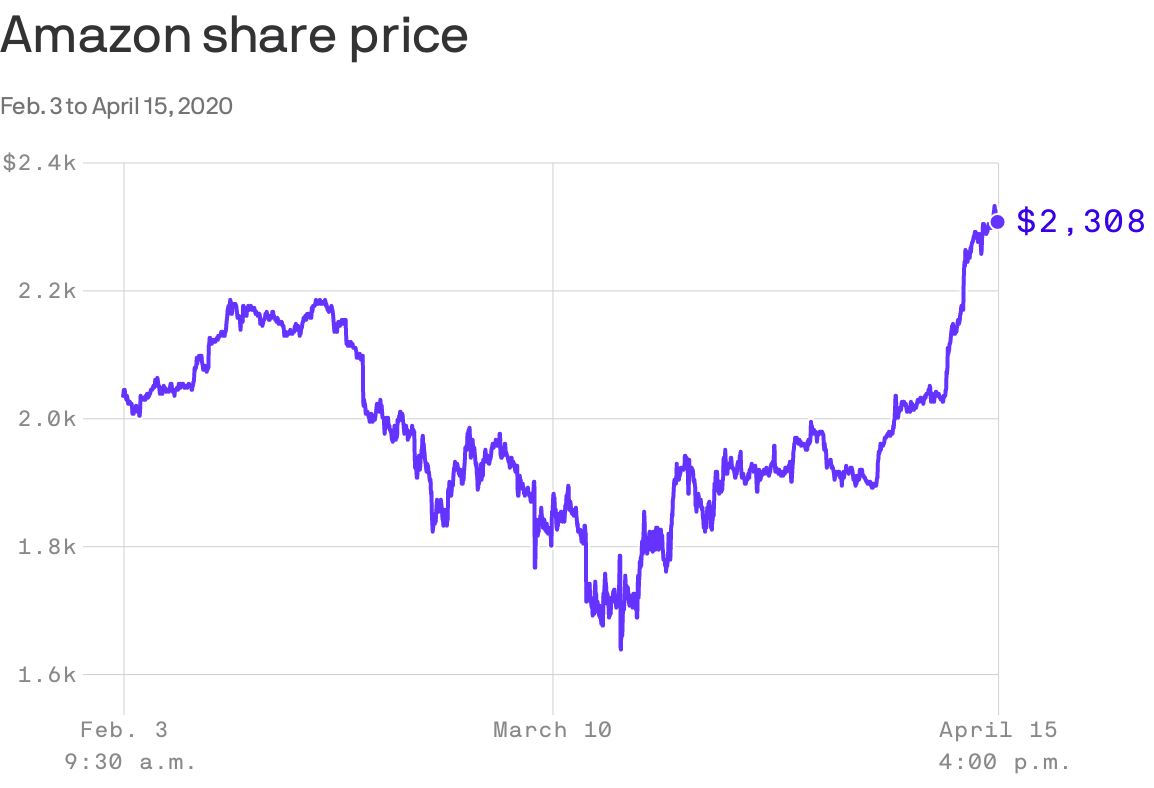Dividends live on as companies change their habits to accrue cash
Add Axios as your preferred source to
see more of our stories on Google.

Illustration: Sarah Grillo/Axios
One side effect of uncertainty is a desire for cash. Because companies have very little visibility into the future, a large cash cushion will help them survive as many future worlds as possible.
Why it matters: The desire for cash helps to explain record corporate borrowing, as well as money-saving activities like furloughs, layoffs and pay cuts. It also explains why companies have almost entirely stopped buying back their own stock.
- But there's one cash-burning habit they can't break: Paying dividends.
By the numbers: Of the 500 companies in the S&P 500, only 10 are expected to suspend their dividend entirely in the second quarter, and only 21 are expected to cut their dividend at all.
- Some companies, including Johnson & Johnson, IBM and Apple, are planning to increase their dividend this quarter.
Context: Once upon a time, stocks were owned mainly by individuals, many of whom lived on their dividend income. Companies took that responsibility seriously: AT&T laid off 185,000 workers in the 1930s, but never cut its dividend.
- Today, however, buybacks are more popular than dividends, and retaining earnings for a few quarters during a global pandemic seems entirely prudent. After all, why borrow money on the capital markets when you can just retain your earnings instead? You can always pay those earnings back out when the crisis is over.
- America's largest banks are happy to voluntarily suspend share buybacks entirely — but not to cut their dividends. It seems the two things aren't quite as equivalent as analysts have been asserting.
- Minneapolis Fed president Neel Kashkari, a key player in the 2008–9 crisis response team, says the biggest U.S. banks should suspend their dividends and raise $200 billion in new capital. Don't hold your breath, though: This is one area where Powell has been uncharacteristically meek during the crisis.
The bottom line: There's something atavistic about the way companies cling to paying dividends, even during a crisis. Perhaps these companies should take a page out of Warren Buffett's book. He only ever paid one dividend, in 1967, and has regretted it ever since.
On that note: Amazon's share price hit a new all-time high this week. It rallied 42% in one month, from a low of $1,638 on March 16 to a high of $2,331 on April 15.
- Netflix, too, is at an all-time high.
Neither stock has ever paid a single dividend.

